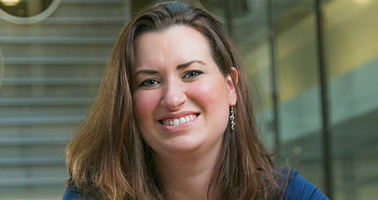Past Event: Oden Institute Seminar
Amanda Randles, Assistant Professor, Biomedical Sciences, Duke University.
3:30 – 5PM
Thursday Mar 9, 2023
POB 6.304 & Zoom
The recognition of the role hemodynamic forces have in the localization and development of disease has motivated large-scale efforts to enable patient-specific simulations. When combined with computational approaches that can extend the models to include physiologically accurate hematocrit levels in large regions of the circulatory system, these image-based models yield insight into the underlying mechanisms driving disease progression and inform surgical planning or the design of next generation drug delivery systems. Building a detailed, realistic model of human blood flow, however, is a formidable mathematical and computational challenge. The models must incorporate the motion of fluid, intricate geometry of the blood vessels, continual pulse-driven changes in flow and pressure, and the behavior of suspended bodies such as red blood cells. In this talk, I will discuss the development of HARVEY, a parallel fluid dynamics application designed to model hemodynamics in patient-specific geometries. I will cover the methods introduced to reduce the overall time-to-solution and enable near-linear strong scaling on some of the largest supercomputers in the world. Finally, I will present the expansion of the scope of projects to address not only vascular diseases, but also treatment planning and the movement of circulating tumor cells in the bloodstream.
Amanda Randles is the Alfred Winborne Mordecai and Victoria Stover Mordecai Assistant Professor of Biomedical Sciences and Biomedical Engineering at Duke University. She has courtesy appointments in the departments of Mechanical Engineering and Material Science, Computer Science and Mathematics, and is a member of the Duke Cancer Institute. Focusing on the intersection of high performance computing, machine learning, and personalized modeling, her group is developing new methods to aid in the diagnosis and treatment of a diseases ranges from cardiovascular disease to cancer. Amongst other recognitions, she has received the NIH Pioneer Award, the NSF CAREER Award, and the ACM Grace Hopper Award. She was named to the World Economic Forum Young Scientist List and the MIT Technology Review World’s Top 35 Innovators under the Age of 35 list and is a Fellow of the National Academy of Inventors. Amanda received her Ph.D. in Applied Physics from Harvard University as a DOE Computational Graduate Fellow and NSF Fellow. Before that, she received her master’s degree in
Computer Science from Harvard University and her bachelor’s degree in computer science and physics from Duke University. Prior to graduate school, she worked as a software engineer at IBM on the Blue Gene supercomputing team. She has contributed to over 80 peer-reviewed papers, over 100 granted US patents, and had over 100 pending patent applications.
